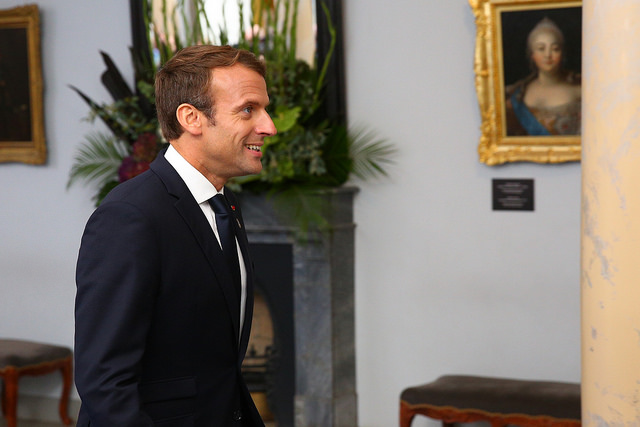Macron needs more than charm

For centuries, France and the United States have been friends, allies and competitors. Both have been world powers; both have been models of liberal democracy; and both achieved democratisation through revolution. In fact, France was the first ally of the new US, having provided military support during the American Revolutionary War—the first of many times the countries would collaborate in military endeavours.
On his recent trip to Washington, DC, French President Emmanuel Macron attempted to use this history to reinforce the bilateral relationship today, potentially giving France more influence over US President Donald Trump’s unpredictable administration. But Macron’s affability and bonhomie cannot obscure the fact that the two countries are operating under very different circumstances than in the past, much less ensure any semblance of reliability from the Trump administration.
During the Cold War, General Charles de Gaulle wanted France to serve as a bridge between the West and the East. This implied being a faithful US ally, in good times and in bad, while acting as something of a fair-weather friend to the Soviet Union and China.
Today, Macron wants France to serve as a bridge within the West: between the US and Europe. This might seem to be an easier task, given the two sides’ shared history and values. And, indeed, it is that history and those values that Macron attempted to invoke, as he established himself as a defender of liberal democracy and internationalism, with language and vision marked by American-style optimism.
Nor is this the first time a French president has acted like an American leader. But Nicolas Sarkozy—who literally coined for himself the nickname ‘Sarko the American’—was more eager to align himself with George W. Bush, especially when it came to foreign policy. Macron, by contrast, is espousing the values and adopting the rhetoric of Barack Obama.
Neither has much in common with Trump, who, in the words of former FBI Director James Comey, acts more like a mafia boss than a US president, and seems utterly uninterested in sustaining US global leadership. The challenge ahead for Macron may thus turn out to be even more formidable than the one confronted by De Gaulle.
If Macron’s visit were a soccer game, it would have included some beautifully executed plays—such as Macron’s speech to the US Congress—before ending in a draw. Beneath the veneer of mutual affection on display in Washington, Macron’s visit was marked by deep disagreements, including over climate change and the Iran nuclear deal.
Macron’s declaration that ‘there is no Planet B’ has not elicited any substantive move by Trump to rejoin the Paris climate agreement. And, despite the mention of a new, enlarged agreement with Iran, Trump continues to embrace the radical visions of his new secretary of state, Mike Pompeo, and national security adviser, John Bolton.
By establishing a friendly public rapport with Trump, Macron may even have put himself at risk. After all, it will not look good if Macron is closely aligned with a Trump who makes catastrophic strategic decisions or ends up in the jaws of the US justice system. Trump is simply too unpredictable for a close relationship with him to be anything other than a political liability.
If that closeness—those appeals to Trump’s vanity—were producing positive outcomes for along the way, Macron’s efforts might be worthwhile. But to flatter Trump is one thing; to obtain significant diplomatic and trade concessions from him is quite another. And Macron seems to have found success on only one of those fronts.
By establishing himself as a voice of reason, moderation and responsibility, Macron tried to lay the groundwork for his emergence as a real agent of change. He does not want his legacy to comprise simply powerful speeches; he wants to tackle real issues affecting France, Europe and the world. But it remains far from clear whether his tactics will work, particularly with regard to Trump.
The question is whether the alternative approach to Trump—the far less friendly, more businesslike approach of German Chancellor Angela Merkel—will produce better results. It seems unlikely, but when it comes to securing actual concessions, at least Merkel cannot do much worse.